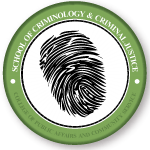Author ORCID Identifier
Document Type
Article
Publication Date
5-2021
Publication Title
The Criminologist
Volume
46
Issue
3
First Page
1
Last Page
6
Abstract
Before conducting research in an Indigenous community, a researcher, especially a non-Indigenous researcher, must recognize and acknowledge not only the historical impact research has had on Indigenous communities but the current impacts that arise when research is conducted in Indigenous communities. Specifically, one must consider settler colonialism and its continuing impact on Indigenous communities today. Professor of Indigenous Education Linda Tuhiwai Smith (2012) states: “The word itself, ‘research’, is probably one of the dirtiest words in the Indigenous world’s vocabulary”. Smith continues by linking research and Western imperialism and colonialism together, with research being a tool for imperialism and colonialism. Therefore, it is critical to identify how research and its processes have been used to justify the dehumanization of Indigenous people in order to gain and maintain power over Indigenous communities. Researchers must ensure that their research does not perpetuate unequal power dynamics and is based on a collective process. Suggestions for best practices for working with Indigenous people/communities are presented below.
Recommended Citation
Gilbert, S.L., Wright, E.M., DeHerrera, R., & Richards, T.N. (2021, May/June). Conducting research in indigenous communities: Recommendations for research partnerships. The Criminologist, 46(3), 1-6. https://asc41.com/wp-content/uploads/ASC-Criminologist-2021-05.pdf


Comments
Permission to deposit this article was obtained from the Criminologist by the American Society of Criminology (ASC) who owns the copyright and is available at: https://asc41.com/wp-content/uploads/ASC-Criminologist-2021-05.pdf